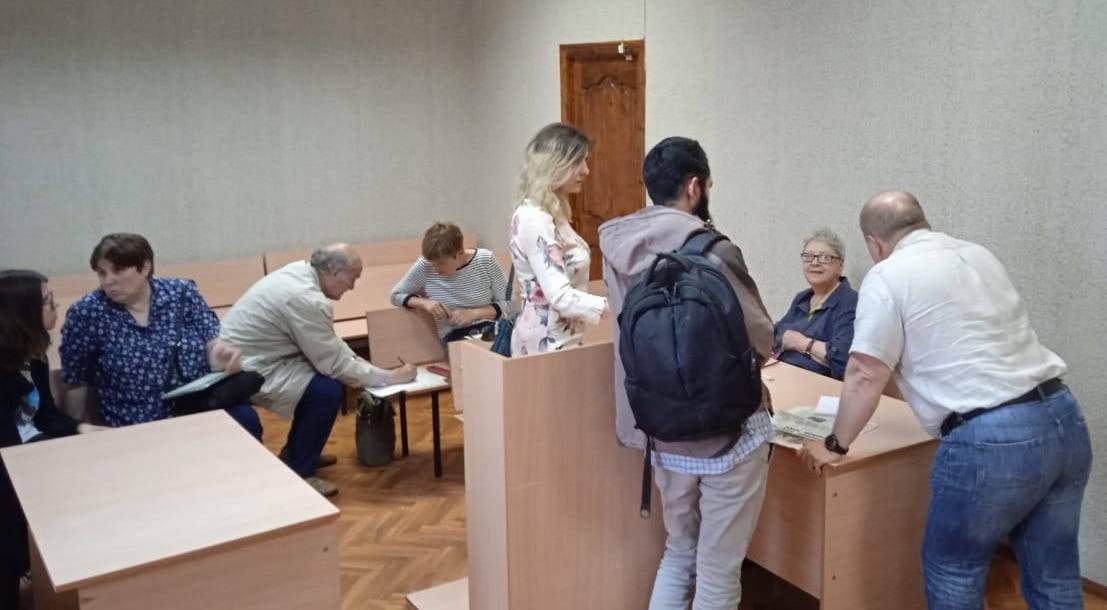Reacting to the news that Russian migrants’ rights defender Tatyana Kotlyar has been convicted and fined with 650,000 roubles (US$7,500), Natalia Zviagina, Amnesty International’s Russia Director, said:
“Tatyana Kotlyar is being punished simply for helping hundreds of people, including migrants and refugees, by generously registering them at her home. Under Russian law, people need to have a registered address to access social services, enrol children in school or obtain a job. This legal requirement perpetuates the marginalization of the most at-risk individuals, including homeless people and people on the move. Instead of fixing this problem, the authorities have focused on penalizing human rights defenders like Tatyana Kotlyar.”
Tatyana Kotlyar is being punished simply for helping hundreds of people, including migrants and refugees, by generously registering them at her home
Natalia Zviagina, Amnesty International’s Russia Director
“The criminal case against Tatyana Kotlyar is another rock which has been thrown at Russia’s fragile civil society. The Russian authorities should quash the conviction, solve the registration problems faced by marginalized people, and end their ruthless campaign of harassment and intimidation against those who stand up for the most at-risk and vulnerable people in society.”
Background
Tatyna Kotlyar, 72, is the head of the “For Human Rights” movement from Obninsk, Central Russia. On 28 June, a magistrates court in Obninsk found her guilty of fictitious registration of persons at her home address (Article 322.2 of the Criminal Code) and imposed a fine of 650,000 roubles (US$7,500).
Russian law requires every person to register with the Federal Migration Service within seven days at their temporary address and within 90 days at their permanent or longer-term place of residence. Failing to do so is an administrative offence punishable by a fine. Unregistered persons have no access to healthcare, education and other services, and cannot be formally employed. Registration entails certain legal guarantees, including the right to reside at the relevant address, and creates certain financial obligations for landlords which acts as a disincentive for registration in cases of informal home letting, which is a very common practice.
In recent years, Tatyana Kotlyar’s actions to help those lacking registration, including migrants and refugees, former prisoners, and those who have lost their homes, have resulted in repeated penalties. Most recently, in April 2022, she was fined 340,000 roubles (US$4,500) for registering in her flat nationals of Azerbaijan, Armenia, Kazakhstan and Ukraine.
The European Court of Human Rights recognized the unjust nature of Kotlyar’s prosecution and awarded her compensation of 6,000 euros in July 2022. However, the authorities have failed to implement the ruling, as Russia, which is no longer a member of the Council of Europe, does not recognize the jurisdiction of the ECtHR.


